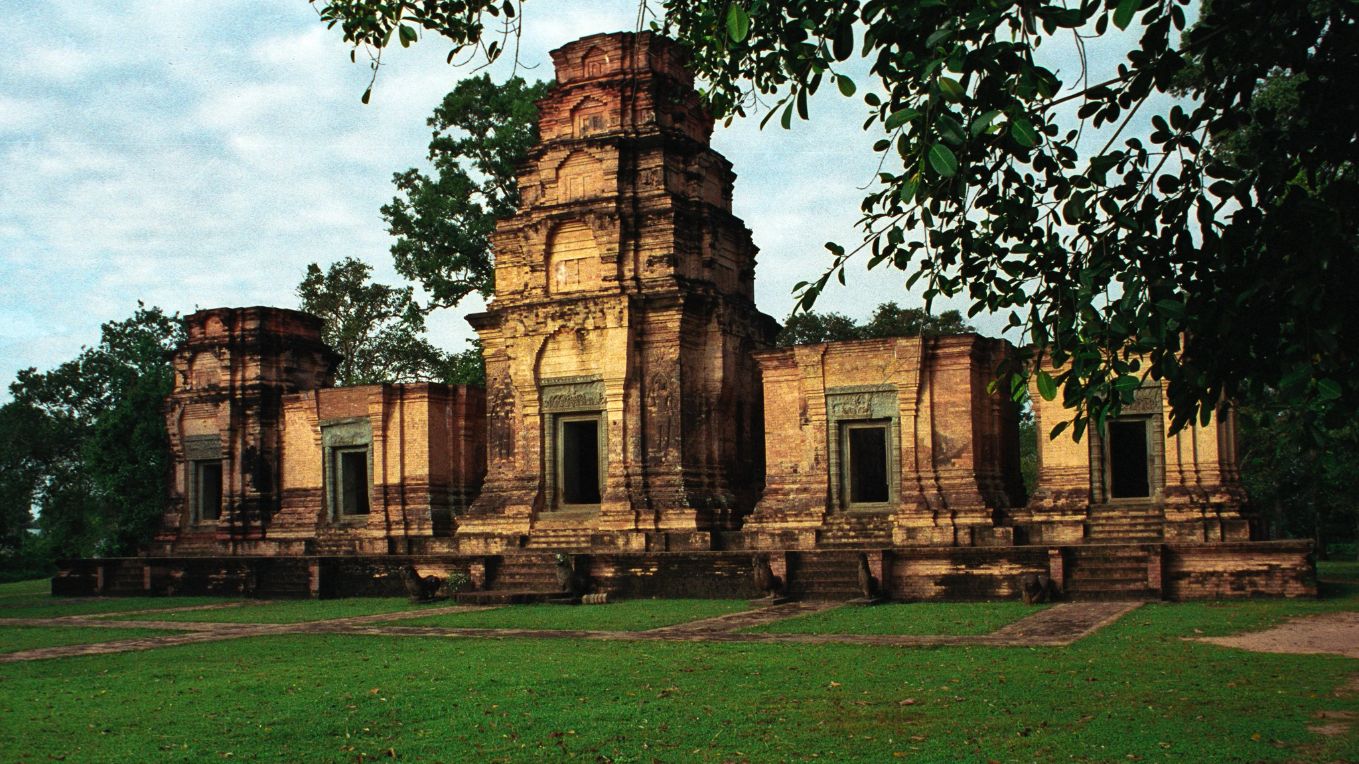The culture of Cambodia has a rich and varied history from back many centuries ago and has been heavily influenced by India.

Cambodia
The culture of Cambodia has a rich and varied history from back many centuries ago and has been heavily influenced by India. Cambodia as a country has rapidly reassembled itself back up from the war. It has laid a promising path ahead of the Khmer empire.
There was once a time in Phnom Penh when no building could be higher than the Royal Palace; things have certainly changed. Once also famous for unsealed roads plagued with potholes that made local travel an adventure in itself. Phnom Penh, the nation’s capital, is emerging as a bustling modern, vibrant, exciting metropolis, quality education, and a sustainable future. The skyline is now a horizon of high-rise buildings and skyscrapers and from one of the new many rooftop restaurants and bars. You now know you are in a major city.
People (Khmer)
Cambodian people or Khmer people are very gentle. They are generous, sweet, caring, and always smile at others. As a profoundly Buddhist country, the philosophy of being caring and compassionate forms part of daily life in social groups. Family is a priority; people in Cambodia give importance to the family more than anything else, with life revolving around the home.
Family sizes also have many members, with siblings, aunties, uncles, nephews, and other relatives. You can see many family members coming together to celebrate during occasions, such as Meak Bochea/Magha Puja Day or Khmer New Year.
Cambodian culture loves to have significant and extraordinary parties by including everyone they’ve ever met in, turning on some music, singing along, and chanting from early morning till late at night. Whether it’s a wedding, anniversary, funeral, or other special celebration.
Religion and culture
All over Cambodia’s culture and long history, an essential principle of inspiration was guided by religion. Cambodians developed a unique Khmer belief from the combination of indigenous animistic beliefs and the originally Indian religions of Hinduism and Buddhism. They evolved around Indian culture and civilization, including language, arts, religious faith, tradition, dance, and singing.
The Angkorian architects and sculptors built temples that mapped the cosmic world in stone. Khmer decorations were inspired by religion, and mythical creatures from Hinduism and Buddhism were carved on walls from the Indian civilization.
However, it later evolved into its own unique Khmer style. The Khmer sculptures were carved from stone with outstanding craftsmanship, and many of them represent the Hindu deities.
Cambodians are proud to present their pride in their narrative, their history, and their culture. Angkor Wat is their home and the birthplace of the great Angkor Empire; Khmer people are passionate about revealing their unique and special heritage.
Several other nations have influenced Cambodian cuisine: Thai, Lao, French, and Indian. Rice is the staple food, and meals are usually accompanied by a soup (samla), also used to make rice noodles. Cambodians use a lot of fish as their main ingredient. The most basic way to eat grilled fish is to cut it into pieces, wrapped in a lettuce leaf or spinach, then soaked in a fermented fish sauce.
The Khmer also frequently uses coconut milk, such as Amok fish, one of the most well-known dishes. There are all kinds of exotic fruits for sale, but one of the more interesting is the durian. Known for its pungent smell, it has a silky texture and a unique flavor.
Phnom Penh
Phnom Penh is one of the last capital cities in Asia. However, you can still get up close and personal to life on the streets in these urban areas. Street vendors pushing trolleys selling everything from ceramics and household utensils. You will find sustainable food such freshly cut fruits, coconuts, dried fish, and ice cream. Steaming hot fried noodles wander the streets, each making an announcement or playing a catchy tune.
The best and closest shave a man can get still happens out in the open and on the street. You will still always see, smell or taste something new when you take a stroll through the backstreets of Phnom Penh. The riverside area of Phnom Penh is home to some great eateries and bars. Where you can enjoy a refreshing ale or drink of choice and simply enjoy watching life just pass you by.
One of the most remarkable developments in recent years has been the birth of a new and exciting food scene. A contemporary cuisine known as modern Khmer has emerged along with a delightful array of fusion restaurants. Created the best and freshest local seasonal produce.
Lifestyles
Phnom Penh now has a reliable local bus transport system that reaches all parts of the city. However, the best way around town still remains traveling in a tuk-tuk. Whilst the traditional remork style of tuk-tuk or cyclo is now a rarity, the new rickshaw style vehicles are still a unique, exciting and efficient way to get across town.
Despite this growth and development underneath the canopy still lies the heart and soul of this mesmerizing and fascinating city. You do not need to walk far to find Sangkat or Khan’s (suburb) local markets. Shopping malls with supermarkets have opened, but most local people still prefer to shop for their daily needs at their local markets.
This remarkable phenomenon has always amazed visitors. Phnom Penh is the fact that you do not have to travel far to immerse yourself in a rural and countryside setting. A short trip across the Tonle River to Kos Dach or Silk Island.
You will find yourself in another world far from a busy and buzzing city. Where you can still find women weaving traditional silk scarfs known as Krama’s on traditional wooden looms.
One thing that remains is the absolute charm of Phnom Penh. Sweeping tree-lined boulevards and home to some of the best-preserved French colonial architecture in the region is a comparison against the booming new modern city that is emerging.
For more information and details, please feel free to visit our website khiri Travel Cambodia or contact us at sales.cambodia@khiri.com

